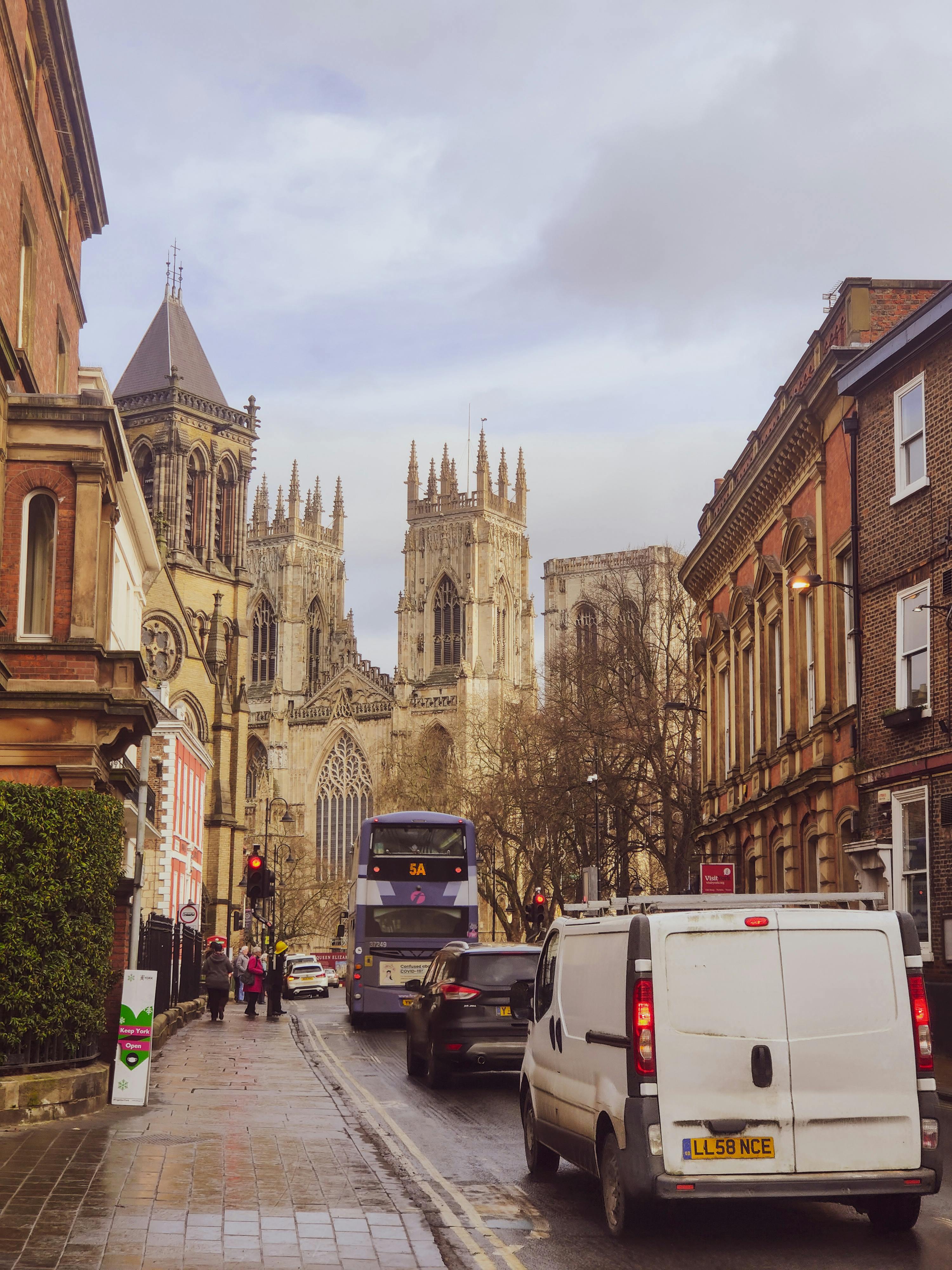Internationally renowned for its football and Beatles cards, Liverpool is also a popular choice for international students thanks to its diverse cultural landscape, rich history, and prestigious universities. The cost of living in Liverpool has changed over the years, but one thing remains constant: it is an affordable city compared to many other popular destinations. In this blog, I will summarise the main expenses in Liverpool: tuition fees, accommodation, transport, and daily expenses. I hope it helps you understand the various living costs in Liverpool.
Estimated Monthly Cost of Living in Liverpool
| Expense Category | Costs |
|---|---|
| Food | 150–250 |
| Entertainment & Recreation | 50–100 |
| Mobile Network & Internet | 20–40 |
| Transport | 30–70 |
| Accommodation | 400–800 |
| Utilities | 80–180 |
| Other Expenses | 30–50 |
| Total Monthly | 680–1,680 |
Cost of Living in Liverpool: Daily Life
Liverpool, a vibrant city in the United Kingdom, offers a blend of rich history, thriving culture, and a comfortable and affordable lifestyle. Based on data from Expatistan, a UK media outlet, looked at the cost of living in more than 40 major university cities in the UK and came up with 11 cities with the lowest cost of living in the UK, with Liverpool coming in at number four.
Food

Cooking at home is often the most affordable option for students. Buying groceries from supermarkets such as Tesco, Asda, or Aldi can significantly reduce food bills. You can learn about Liverpool’s supermarkets in this blog. Generally, the weekly cost of fast food and beer is £11.88 and £13.44, respectively. People can spend between £20-30 a week on food shopping.
It’s also great to dine out when you want to avoid cooking. In Liverpool, various restaurants offer everything from traditional British dishes to international cuisine. The average cost of a meal at an inexpensive restaurant in Liverpool is around £10-£15 per person. If you prefer to eat out occasionally and cook at home most days, you can expect to spend around £250-£400 per month on food. These are some basic prices for Liverpool food.
| Loaf of Bread (Standard) | £0.90 – £1.20 |
|---|---|
| 1 Litre of Milk (Standard) | £0.95 – £1.15 |
| 1kg Chicken Breast | £6.00 – £7.50 |
| 1kg White Rice (Basic) | £1.00 – £1.50 |
| Dozen Eggs (Medium) | £1.80 – £2.50 |
| Average Weekly Grocery Budget (Single Person) | £30 – £45 |
Entertainment and Recreation

Located in the heart of the North West of England, Liverpool is a city that knows how to entertain, from the Beatles to today’s thriving indie scene. A typical movie at the independent FACT Cinema is around £8, and tickets to a gig at the Cavern Club are around £5. Don’t miss Anfield and Goodison Park for sports fans, costing £20-80. Liverpool ONE is the most famous shopping destination, offering everything from discounted goods to Shopping needs that vary from person to person and can cost from £30 to £300 per visit.
Mobile Network
| Category | Typical Data Allowance | Estimated Monthly Price (£) |
|---|---|---|
| Budget (SIM-Only) | 10GB – 30GB | £10 – £15 |
| Mid-Range (SIM-Only) | 50GB – 100GB | £15 – £25 |
| Premium (SIM-Only) | Unlimited Data | £25 – £40 |
Transport

Liverpool’s public transportation system is comprehensive and surprisingly budget-friendly, making it an ideal choice for students. A student bus pass, known as the ‘Solo Ticket’, can be purchased for as little as £2 per day, giving you unlimited access to the city’s extensive bus network. For those who prefer the speed and convenience of trains, the ‘Railpass’ is an excellent option, from only £55 to £77 per month.
| Ticket Type | Student Price (Approx.) |
|---|---|
| Single Bus Fare | £2.00 Max |
| Day Ticket | £4.50 – £5.50 |
| Monthly Bus Pass | £55 – £70 |
| Term Pass | £165.00 |
| Railpass | £96.25 – £225.10 |
Cost of Living in Liverpool: Tuition

Tuition fees must be the most significant part of the cost of studying abroad because international students usually pay higher tuition fees than UK students.
In recent years, tuition fees at the University of Liverpool have increased by 3-5% per year, with undergraduate tuition fees ranging from £15,750 to £ 25,000 per year and Master’s tuition fees ranging from £16,790 to £ 33,600 per year.
The tuition fees for international students at Liverpool John Moore University are significantly higher than those for local students. Undergraduate tuition fees range from £19,850 to £26,350, and Masters tuition fees range from £16,400 to £24,200.
Generally, undergraduate courses at Liverpool Hope University are priced between £12,450 and £15,000 per academic year, while postgraduate courses are priced between £12,450–£15,000 per academic year.
Cost of Living in Liverpool: Accommodation

Accommodation is the second most considerable expense of studying abroad, but Liverpool is a medium-sized city with low prices, making it ‘affordable’ compared to London‘s £800 a month. In Liverpool, students have a wealth of living options. Common ones are university halls of residence, off-campus student accommodation and social properties. Each option has different advantages and disadvantages, making the costs very different.
On-campus student halls
The cost of accommodation varies according to the type of room: For the majority of people choosing student accommodation, it is divided into two room types, en-suite and studio, and there is also a difference in size between these two types, such as standard and premium. Overall, the price for a week in an en-suite flat ranges from £120-£150 and £160-£200 for a studio. A typical contract is for 43 weeks, i.e. £5,160-£6,450 a year for an ensuite and £6,880-£8,600 a year for a studio.
Off-campus student halls
The cost of off-campus student accommodation in Liverpool varies greatly depending on the type of housing you choose. If you’re considering renting a small studio apartment, you might need to budget anywhere from £ 500- £800 per month. But if you’re open to sharing a house with other students, the cost can be considerably lower, averaging around £225 per month. According to the data given by the uhomes rental platform, the ensuite type of flat, which international students commonly choose, is as low as £129 per week. The average cost of electricity is around £80 to £90 per person per month.
FAQ
The cost of living in Liverpool largely depends on your lifestyle and preferences. However, compared to other major cities in the UK, Liverpool is considered to be an affordable city with a relatively low cost of living.
Liverpool has an extensive and reliable public transportation system, making it easy to get around the city. The cost of a single bus ticket starts at £2.20, while a monthly pass can be purchased for £60-£70 depending on your location.
The average cost of food and groceries for an individual in Liverpool is approximately £200-£250 per month. However, this can vary depending on your dietary preferences and eating habits.








